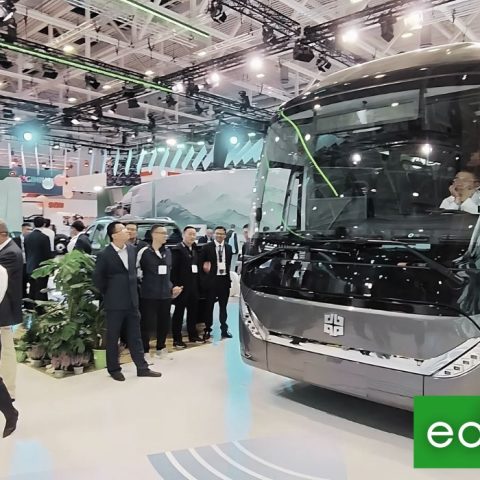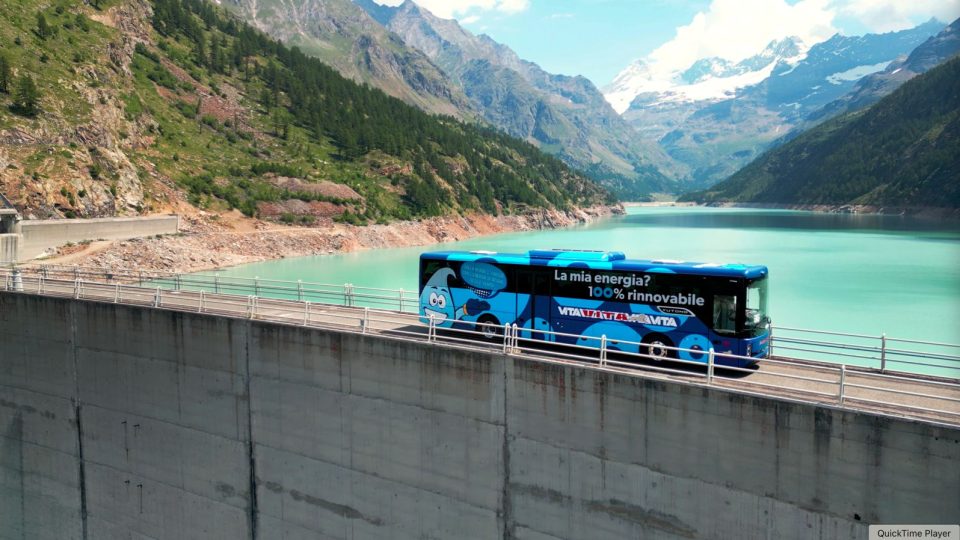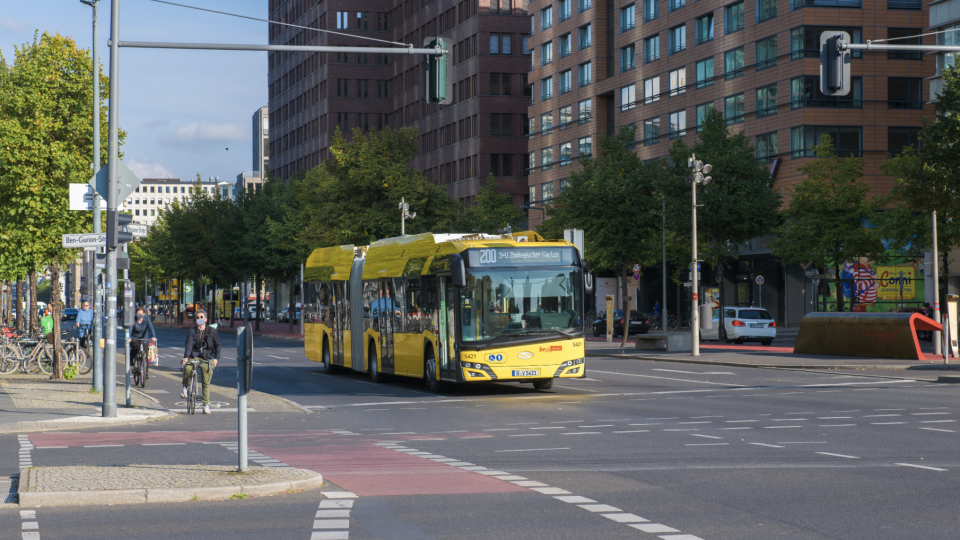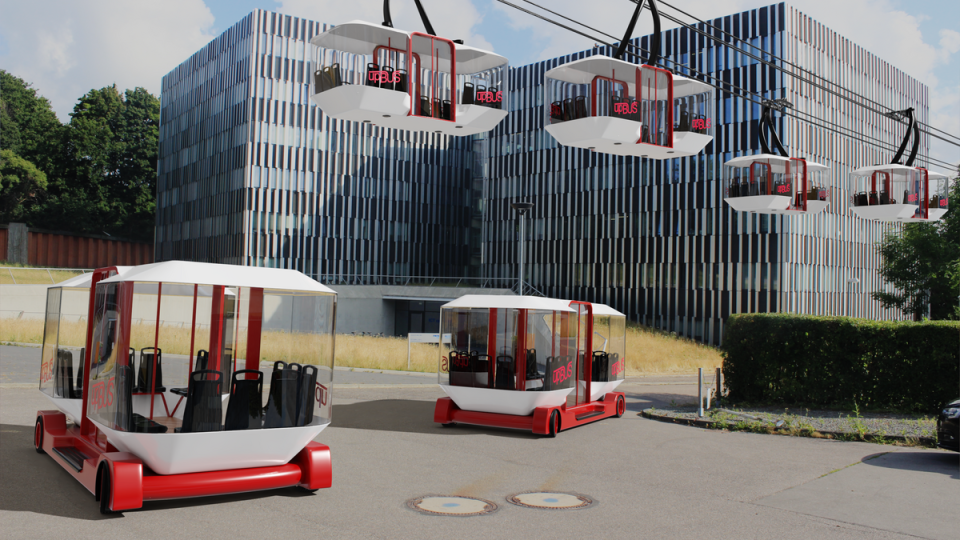Taking a bus-addict alien to IAA Hannover…
If a bus enthusiast from Mars had landed on Earth on September 17, the opening day of IAA Transportation 2024, and made his (or her) way straight to the halls of the Hannover Messe to get a sense of the bus industry in Europe, he would have encountered a picture vastly different from the reality […]

If a bus enthusiast from Mars had landed on Earth on September 17, the opening day of IAA Transportation 2024, and made his (or her) way straight to the halls of the Hannover Messe to get a sense of the bus industry in Europe, he would have encountered a picture vastly different from the reality of the market.
Although it is to be expected that industry fairs showcase developments somewhat distant from current facts (electric buses are heavily on stage since at least 2017…), this distance has typically been in terms of innovation, not geographic origin. This is why this year’s IAA Transportation offers a particularly revealing snapshot.
The increase of Chinese bus manufacturers
While the trend of bus manufacturers gradually distancing themselves from a trade show increasingly focused on freight transport is well-known, especially in the context of a crowded event calendar and limited budgets, this year brought a surprising shift: an exponential increase in the presence of Chinese manufacturers, likely attending IAA (much like our Martian) with the goal of exploring a market in which few of them currently have a foothold. Yes, because the Chinese brands our Martian would encounter in Hannover are not the one we would have expected, like BYD and Yutong, firmly in good position in the European e-bus market. Not at all!
Let’s take a step back for a comparison. The European-rooted bus manufacturers at IAA Transportation in 2022 included Daimler Truck, albeit with vehicles showcased only outside, and Iveco Bus with their E-Way and eDaily models. This year, Daimler chose IAA to unveil a new product: the eCitaro K variant, while Iveco chose not to bring any buses to the show (while revealing the new electric LCV developed with Hyundai and debuting the S-eWay as a rigid truck).
The Turkish bus industry had a strong presence in 2022, with Karsan, Temsa, and Isuzu all participating. And this year? Just an autonomous e-Atak in the outdoor area. Also present in 2022 was BYD, which will instead make its debut at InnoTrans this year.
Bus industry moving East
In 2022, some noted the disproportionately large Turkish presence. This year, we’ve moved much further east.
Alongside the aforementioned participants, this year’s IAA Transportation features the French company Bluebus (without any new product announcements). We mentioned Turkish OEMs: none of the well-established groups are with a stand in Hannover. On the other hand, we found Turkish newcomer Habas, showcasing three vehicles. Habas, which made its debut at Busworld last October, is primarily a steel and gas producer, now investing in the bus sector.
King Long is also making an interesting appearance with the prototype electric coach “Merry Combo“. Wisdom Motor and Higer are present as well, with Scania introducing the Scania Higer Fencer range to Germany for the first time (although without bus at the stand and with just a commercial delegate for the German and Austrian markets). Zhongtong rounds out the roster with a 13-meter electric intercity bus. Also at the expo: Asiastar and Sinotruck.
The competition in components and chargers
Our Martian, looking into the component halls, would have adjusted his perception. Bosch mega-booth reigned supreme, FPT Industrial launched e-axles and the hydrogen-powered Cursor 9. Here too, however, it was CATL that caught the eye.
A massive Chinese presence is bidding to recharge coaches, and other heavy-duty vehicles, with a MegaCharger. Power between 400 and 500 kW electric in less than 15 minutes. And, finally, an encyclopaedia of storage energy.
Is this the future of European bus industry?
Is this the future of the European bus industry? We are well aware of the general trend, also esemplified by a recent Rabobank study showing how, from 2017, EU manufacturers’ market share in the electric bus segment has declined from 74% to 54%, while Chinese manufacturers have risen to 24%.
And the 2023 – 2024 period is a time window that is seeing more than one issue coming to a head. The crisis of the Belgian bus manufacturer Van Hool, its bankruptcy and subsequent takeover by the Dutch group VDL is a story that esemplifyes quite well how the European bus industry changing shape dramatically. Let’s just mention, as epiphenomenons of such trend, Volvo‘s and Scania‘s decision to move back from complete bus production towards the supply of chassis to bodybuilders (which is easier said than done) and the come back to ‘made in China’ assembly chosen by Ebusco (which is in a very delicate financial situation).
More players, which players?
On top of this, the context of reduction of subsidies for the purchase of e-buses (Germany first) cannot help having consequences. “With less funding now available to go around, it is more important than ever for bus companies and transport authorities to make procurement (…) as economic and efficient as possible. This increased focus on procurement price is likely to increase price pressure on established bus manufacturers – not least due to global competition, such as from China”. Quite logic (source? PwC Germany).
The fact is, most of these Chinese brands at Hannover have not established (or have not disclosed) whether they have dedicated commercial structures in Europe. Are they working (or aiming to work) with dealers? In which markets? And let’s not even mention aftersales services. To be frank, in many cases, even basic communication in English proved to be challenging.
Riccardo Schiavo, Fabio Butturi









